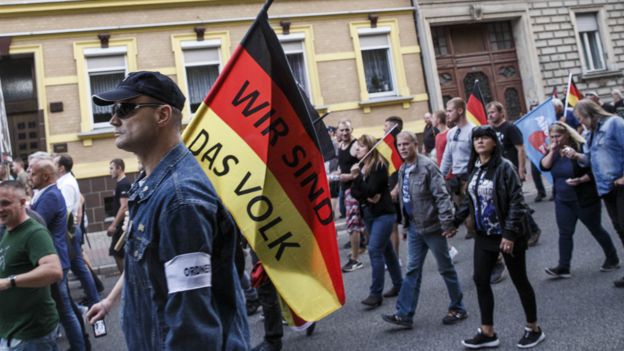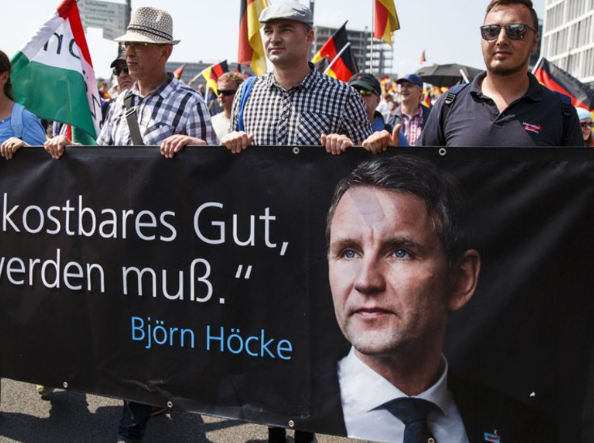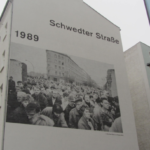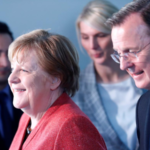Germany’s domestic intelligence service is putting part of the far-right Alternative for Germany (AfD) party under systematic surveillance, judging it a threat to the democratic order.
The decision targets Flügel (the wing), an AfD group especially strong in eastern Germany.
Flügel is led by Björn Höcke, a controversial MP for Thuringia, who was at the centre of a scandal that rocked German politics last month.
Informers may now keep watch on Flügel.
Describing Flügel as an extremist organisation, the domestic intelligence service (BfV) said the faction had some 7,000 members, or 20% of the AfD membership.
Surveillance is a very sensitive issue in privacy-conscious Germany, where many people have memories of intrusive, abusive spying in communist and Nazi times.
Mr Höcke has long been accused of inflammatory rhetoric against Islam and immigrants. He triggered uproar last month by doing a deal in Thuringia with a liberal FDP politician, Thomas Kemmerich, who became the region’s prime minister thanks to AfD and Christian Democrat (CDU) votes.
That election, which was quickly overturned, broke a post-war taboo on Germany’s mainstream parties doing any deals with the far right or far left.
BfV chief Thomas Haldenwang told reporters on Thursday that far-right extremists had been responsible for more than 200 deaths in Germany since 1990.

German broadcaster ARD says that by designating Flügel as a surveillance target, the BfV can recruit informers and keep personal data on file. Phone calls can also be monitored. That goes further than routine observation of certain political activists.
But the rules still do not allow the BfV to document what targeted individuals say in parliament or parliamentary committee meetings.
There are suspicions that Flügel could be used as a vehicle for uniting far-right extremist groups, including neo-Nazis.

Another prominent Flügel activist, Andreas Kalbitz, has associated with neo-Nazis in the past, German media report.
In January the neo-Nazi group Combat 18 was banned in Germany and activists’ homes were raided by police.
Mr Höcke has written that his demand for “de-Islamising Germany and Europe” is “not directed against freedom of belief rooted in the constitution”. He also denies wishing to expel Muslims or any German citizens.
The AfD, openly anti-Islam and anti-establishment, is the biggest opposition party in Germany. It has 91 seats in the 709-seat Bundestag (lower house), and is present in all the regional parliaments.
Joachim Seeger, a top BfV official, said closer surveillance of Flügel was necessary because the faction was acting in a more co-ordinated way, networking with other far-right groups intensively on the internet, appointing representatives and influencing the rest of the AfD.
He condemned Flügel’s nationalist “völkisch” ideology as a racist credo designed to exclude immigrants from German society. The Nazis glorified the “Volk” (German nation) while denigrating Jews and other minorities.
Those ideological positions were being consolidated, he warned, citing a recent pamphlet which expanded on Mr Höcke’s notorious description of the Berlin Holocaust Memorial as a “monument of shame”.



